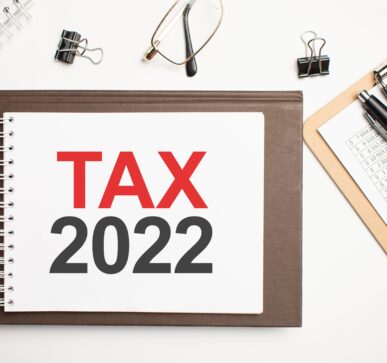On 9/1/22, the IRS posted Form 1040 2022 Draft. Form 1040 is the U.S. Individual Income Tax Return and since tax year 2019, Form 1040 has been asking taxpayers about their virtual currency doings on the front page. Form 1040 2022 Draft changes the crypto terminology from “virtual currency” to “digital assets”. The purpose of the change in terminology could be interpreted as a “head up” to taxpayers that the IRS is looking more closely as well as an intention to provide more clarity. That said, taxpayers ought to treat the expanded terminology or rewording that the IRS wants to know all about a taxpayer’s crypto dealings and if a taxpayer is uninformed – he or she will be an easy IRS audit target.
FORM 1040 2021
At any time during 2021, did you receive, sell, exchange, or otherwise dispose of any financial interest in any virtual currency? Yes or No
FORM 1040 2022 DRAFT
Digital Assets: At any time during 2022, did you: (a) receive (as a reward, award, or payment for property or services); or (b) sell, exchange, gift, or otherwise dispose of a digital asset (or a financial interest in a digital asset)? (See instructions.) Yes or No
There are 2 take-aways:
- Receiving cryptocurrency is now further defined as digital assets earned through “rewards, awards or compensation.”
- IRS wants to know if taxpayers have sent or received crypto as a gift.
This is a Yes or No Answer
Yes or No answers to Crypto questions could lead a taxpayer to answer the question wrong and be exposed to a potential audit.
The FORM 2022 Draft Crypto question is just confusing?
For tax year 2022, the annual exclusion for gifts is $16,000 as per the IRS. Does this mean that a taxpayer will only answer yes if the gift exceeds $16,000? Or does a taxpayer report a gift regardless of the amount given that there in clarity in the question?
IRS ought to clarify the meaning of virtual currency versus digital assets
Taxpayers deserve an explanation as to why the IRS has interchanged the terminology from “virtual currency” to “digital assets.” Perhaps the intent is to broaden the definition of the crypto assets that fall within “digital assets” as opposed to “virtual currency.”
Crypto asset transactions are continuing to grow and regulating and taxing the crypto asset industry is a top priority of the U.S. Government.
Taxpayers that are uninformed about their reporting and filing obligations related to crypto assets need to consult with a specialized crypt tax advisor, particularly for the tax year 2020 as there is no assurance that the IRS will provide further detailed instructions for Form 1040 2022. ©





